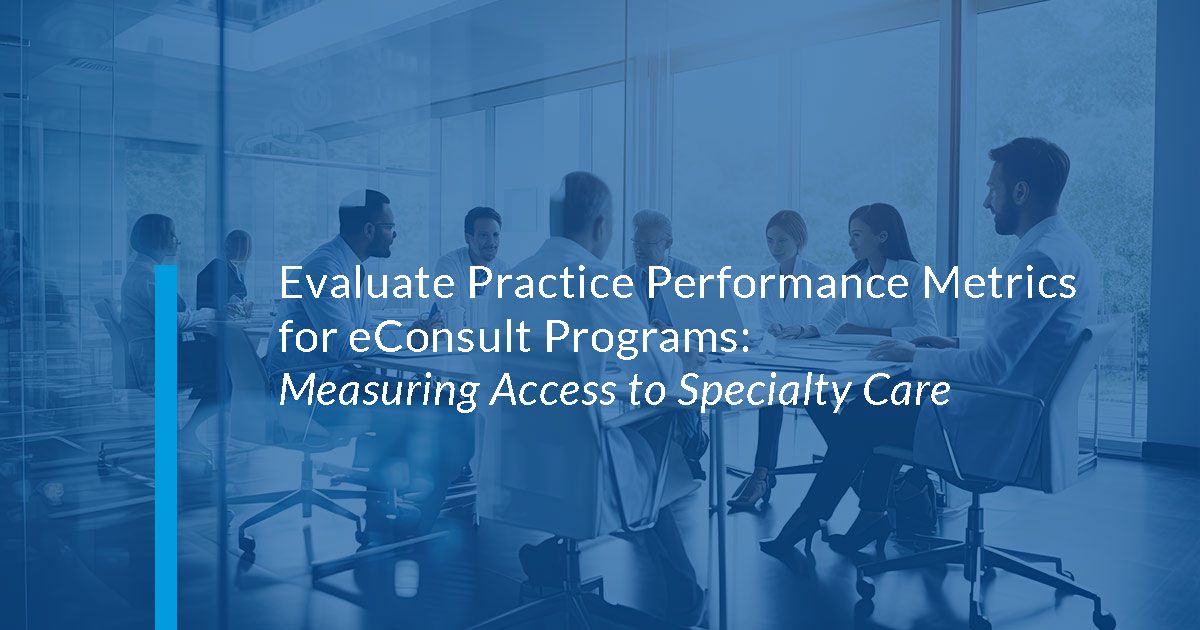Greater Access to Specialty Care in the Primary Care Setting
Find out how eConsults can help primary care providers continue to make a difference in patients’ lives by enabling greater access to specialty care from North County Health Services, CMO Dr. Pat Tellez.

Measuring Patient Access to Specialty Care
With considerable time and effort, at-risk practices identify patients at high risk of serious health events. We want to use this same information to develop an eConsult strategy. To increase patient access to specialty care, consider which specialties have long appointment wait times, higher costs, conditions easily managed by PCPs and do not need a face-to-face specialist visit.
Using eConsults in these situations will drive cost savings, improve outcomes and decrease the risk of:
- ED use – a costly alternative to a specialist visit.
- Unscheduled or canceled specialty care appointments.
- Boomerang appointments to primary care.
Greater access to specialty care is the goal. Together, we can track and communicate which specialties are most:
- Needed by the patients you serve
- Likely to improve outcomes
- Appropriate for eConsult
- Valuable to your practice
Identify Specialties with Long Appointment Wait Times
There are many reasons why patients must wait too long to get an appointment with a specialist.
- Not all specialists accept Medicare and Medicaid.
- Doctors in many specialty areas are unevenly distributed across the country.
- Patient referrals are often scheduled by the urgency of the condition.
- Current patients are prioritized for appointments.
Merritt Hawkins reports that the nationwide average wait time to see an orthopedic surgeon is relatively short – just 16.9 days. However, looking at the average can be misleading.
- This average is a 48% increase when compared to 2017
- Getting an appointment with an orthopedist varies tremendously by location – San Diego averages 55 days!
Several factors impact appointment wait times. Not all specialists accept Medicare and Medicaid. Specialists are often clustered in metropolitan areas and unevenly distributed across the county.
